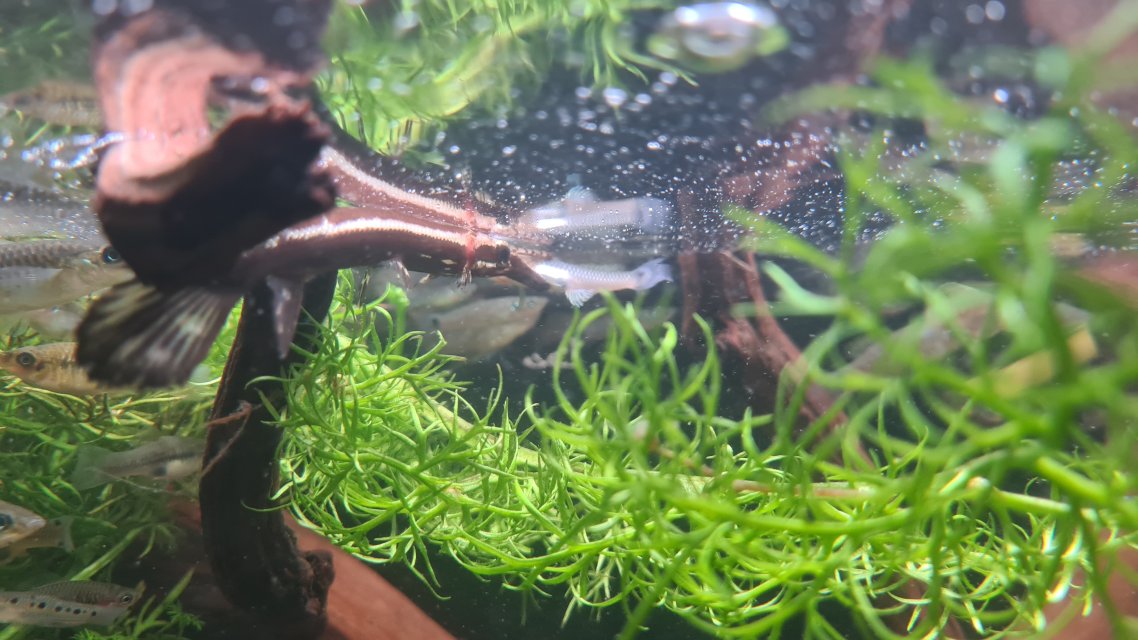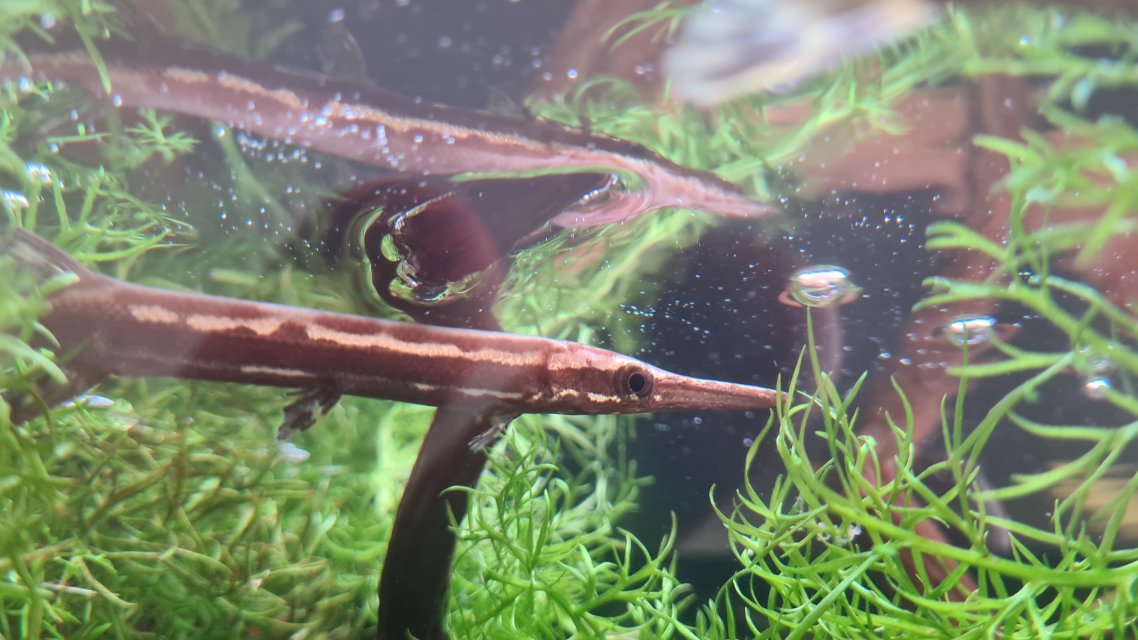Hello everyone,
I recently moved to mexico and saw they had tropical gars for ~5US$ each, so I couldn't resist and bought 5 as I always wanted to keep them. Rn they sit in a nice tank with a bunch of feederfish and grow well.
For next year I want to built a large pond in the backyard to keep all the "native" fish from a river closeby here (various cichlids, tetras, swordtails, platys, plecos.... people just set them free there and they flourish). My question is now, as the gar get a bit older and slower, will I be able to keep them in the pond without them destroying it immediately?
Some fish tend to get lazy as they age and ignore smaller fish or dont eat them as they have plenty of easy food around. Others however, like Cichla that still hunt mosquito larvae at 50cm, never mellow down.
I don't know where to put gars as I saw both alligator gars swim with sunfish they could eat in zoos aswell as alligator gars trying to eat silver dollars that would never fit down their throat. For the less aggressive gars I have nothing to base an opinion on.
Has anyone here some experience that can help me on? I would really like to keep them in the pond, and if they eat the occasional Swordtail or Tetra I don't mind, but if they will just eat everything the second they can I have to think lf something else.


I recently moved to mexico and saw they had tropical gars for ~5US$ each, so I couldn't resist and bought 5 as I always wanted to keep them. Rn they sit in a nice tank with a bunch of feederfish and grow well.
For next year I want to built a large pond in the backyard to keep all the "native" fish from a river closeby here (various cichlids, tetras, swordtails, platys, plecos.... people just set them free there and they flourish). My question is now, as the gar get a bit older and slower, will I be able to keep them in the pond without them destroying it immediately?
Some fish tend to get lazy as they age and ignore smaller fish or dont eat them as they have plenty of easy food around. Others however, like Cichla that still hunt mosquito larvae at 50cm, never mellow down.
I don't know where to put gars as I saw both alligator gars swim with sunfish they could eat in zoos aswell as alligator gars trying to eat silver dollars that would never fit down their throat. For the less aggressive gars I have nothing to base an opinion on.
Has anyone here some experience that can help me on? I would really like to keep them in the pond, and if they eat the occasional Swordtail or Tetra I don't mind, but if they will just eat everything the second they can I have to think lf something else.




